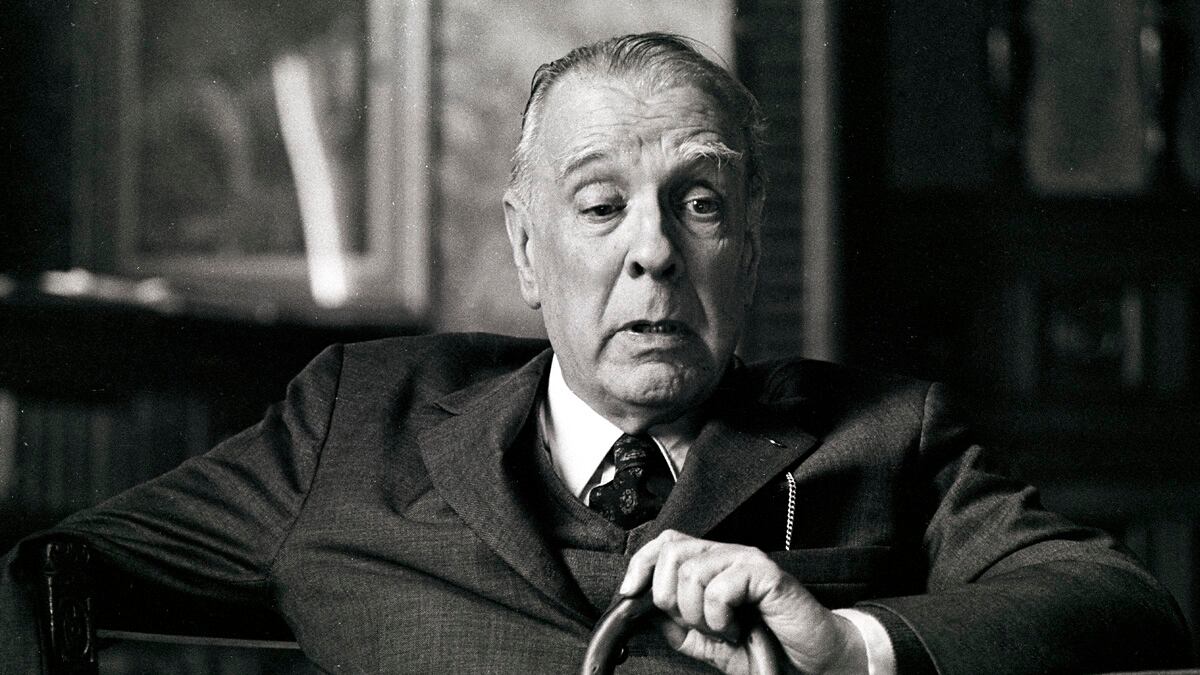The work of Jorge Luis Borges belongs to the tradition of literature with cosmic ambition: the Bible, the Iliad, the Divine Comedy, Paradise Lost, Ulysses, etc.—the works that strive to convey complete universes, containing everything. They’re contingent upon (and thus imply the belief in) the totality of language: all of history, all of memory, all of current cosmology and/or theology, all the unbreakable continuity of human experience can be deposited and narrated in language. Indeed, in such works language seems to be able to cover the perpetual entirety of the past, present, and future and involve the real, the imagined, and all that is in between. They offer crucial evidence that it is utterly impossible to conceptualize humanity without literature. Their philosophical/ethical/aesthetical ambition demands total commitment from the reader—an ideal reader would devote his/her entire life to the exegesis of, say, Joyce’s Ulysses, thereby erasing all the nonreaderly aspects of his/her existence.
Such a reader, of course, would be a perfect Borgesian character, for whom the experience of life is unavailable outside literature. Funes the Memorious is as Borgesian a character as they come, a man tormented by his hyperencylopedic mind, tragically unable to forget anything. “I alone have more memories than all mankind has probably had since the world has been the world,” Funes laments. Seemingly fulfilling the most hubristic of human ambitions—to remember/know everything—he is incapacitated by the compulsive absoluteness of his knowledge, unable to think and communicate with the rest of the humanity. Casting himself as the imperfect, inferior countercharacter to Funes, Borges suggests that forgetting—that is, forgetting ceaselessly—is essential and necessary for thought and language and literature, for simply being a human being.
What makes human beings amazing is that we do not abandon our striving in the face of our constant failure to transcend our mortal, biological limits. The great works of cosmic ambition—including Funes’s projects—“an infinite vocabulary for the natural series of numbers, a useless mental catalogue of all the images of his memory”—never achieve the totality they seek, because there is no way they ever could. The essential necessity of forgetting blocks the very possibility of containing everything, but without forgetting such ambition would not be possible at all. We think there is everything, because we forget everything. We want it, because we forget we can’t have it. The magnificent ambition is fundamentally reliant upon the indelible impossibility of its fulfillment. Visionaries and geniuses die drooling, just like everybody else.
Of course, if there were God, everything would be available. “The truth is that we live out our lives putting off all that can be put off,” Borges writes, “perhaps we all know deep down that we are immortal and that sooner or later all men will do and know all things.” If Funes and his absolute knowledge could live on, God would be in evidence, and we would all be immortal, beginning with Borges: “I thought that each of my words (that each of my movements) would persist in his implacable memory.” Within a sentence, Funes and his implacable memory are dead, as is God. Death and forgetting triumph, and with them triumphs, in all its glory and tragedy, the humanity, forever enduring the “multiform, instantaneous and almost intolerably precise world.”

Excerpted from Object Lessons: The Paris Review Presents the Art of the Short Story edited by The Paris Review. Reprinted by arrangement with Picador. Copyright © 2012. All rights reserved. No part of this excerpt may be reproduced or printed without permission in writing from the publisher.






